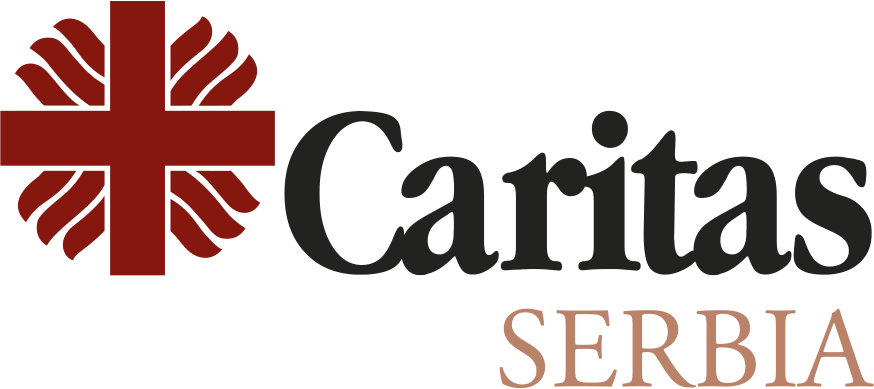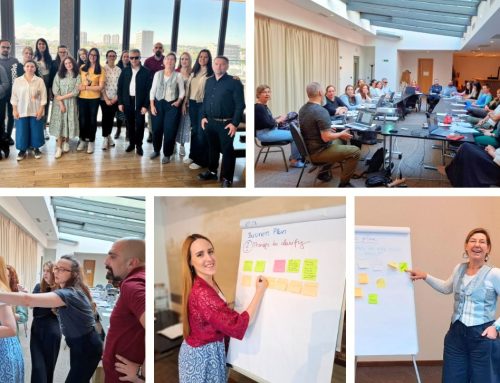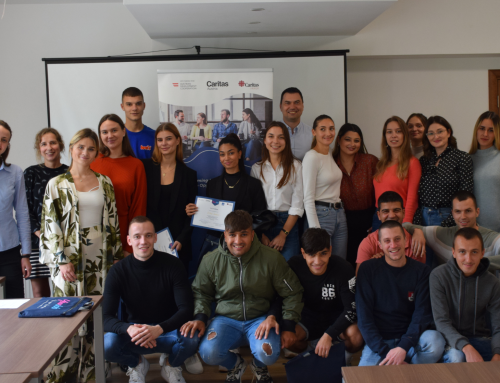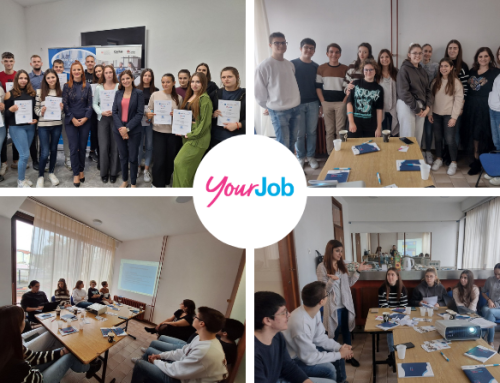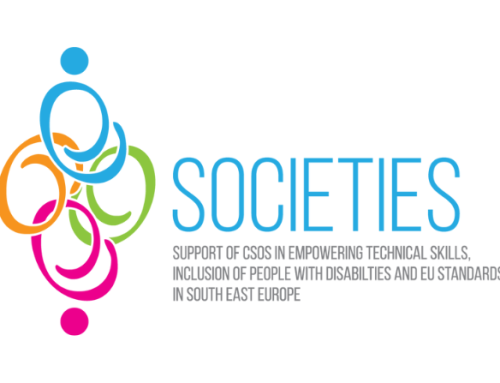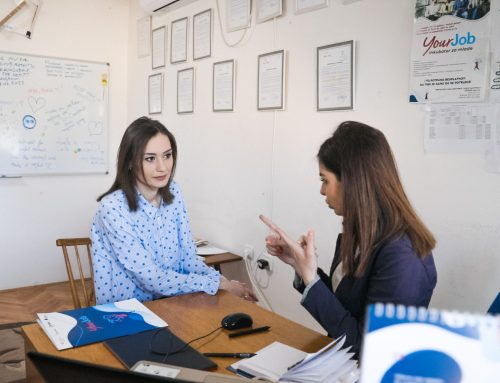Within the project SOCIETIES a study visit was organized from 11 to 13 March, aiming to exchange experiences and examples of good practice in the field of social inclusion between civil society organizations (CSOs)participating in the project. Representatives of 15 CSOs from Albania, Bosnia and Herzegovina, Montenegro and Kosovo, together with representatives of national offices of Caritas and experts from Italy and Bulgaria, had the opportunity to get acquainted with the work of the organizations participating in the project in Serbia, as well as the problems these organizations face.
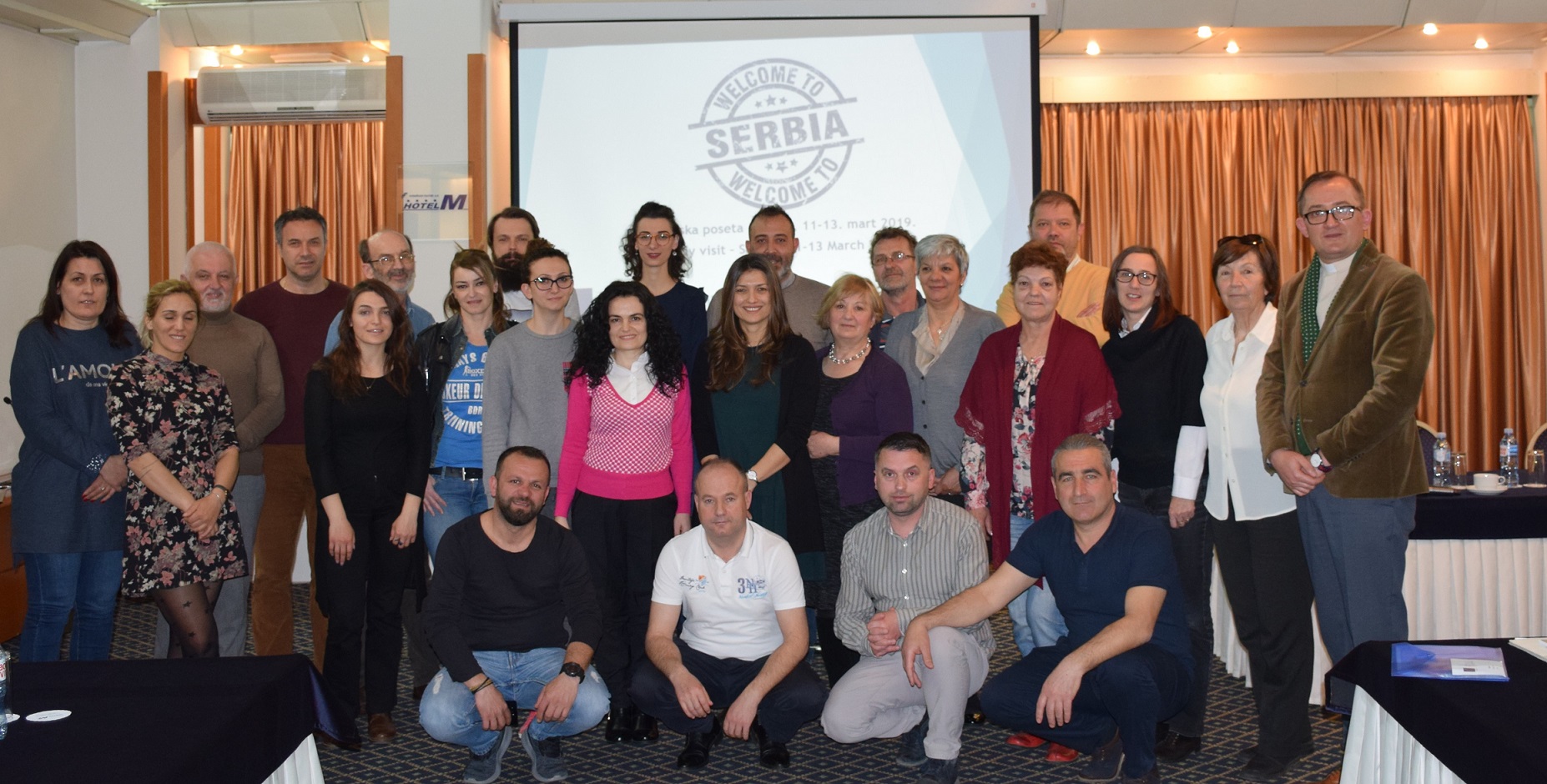
A field visit was organized to the associations Naša kuća from Belgrade (partner organization), and sub-grantees Evo ruka from Zemun, Plava ptica from Kula and ZaJedno from Subotica. In addition, the director of Caritas Subotica welcomed the participants and shortly presented all their social programmes as well as the social enterprise, bicycle repair service, run by this diocesan office. On the last study visit day in Belgrade, the participants got acquainted with the work of two more Serbian sub-grantees, the association Čep za hendikep from Zrenjanin and Lužnicke rukotvorine from Babušnica that presented their initiatives. The organizer, Caritas Serbia, invited also the organization Herc from Belgrade to share its experiences in running an association for the support of people with neurosis and managing, at the same time, the network for promotion of mental health called NaUM that gathers 12 users’ associations.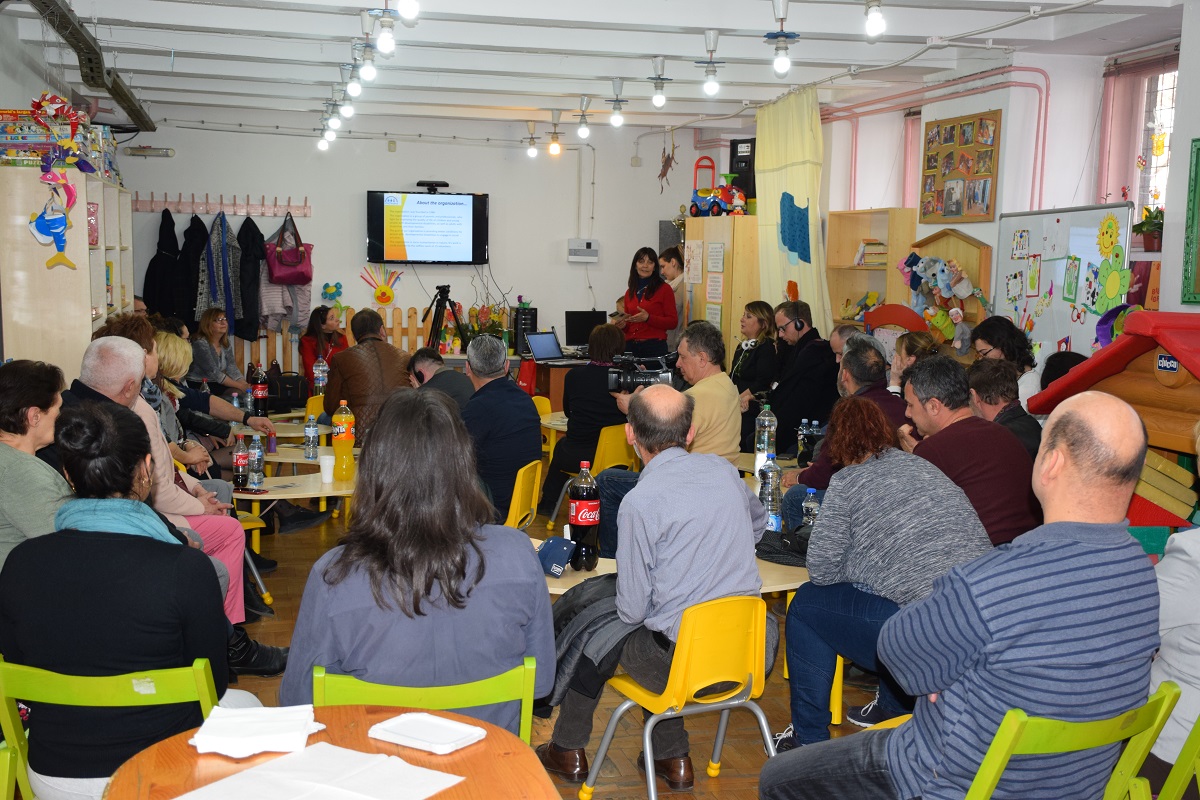
The SOCIETIES project, funded by the European Union, seeks to help civil society associations strengthen their capacities and provide them with financial support for the implementation of local initiatives that will contribute to better social inclusion of people with disabilities and mental disorders in Southeast Europe. Within the framework of the subgranting activities 25 organizations from the region were awarded grants for launching innovative social protection services or social enterprises that would enable better social inclusion of these target groups. On the other hand, the key element of the planned capacity building program are study visits to EU Member States.With that idea study visits to Bulgaria in 2016 and Italy in 2018 were organized.

